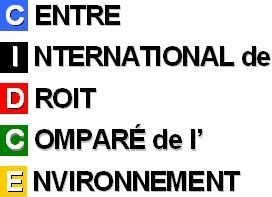Internationalization and Interdisciplinarity were identified as priorities already in 2010, in launching the Rivista quadrimestrale di diritto dell’ambiente and bringing it to the attention of the academic community. These key axes have been confirmed and strengthened.
On the one hand, the Journal does not only aim at targeting the public of Italian scholars, but also intends to take part in the transnational debate which is in progress about the evolution, nature, transformations and limits of environmental law. In order to open up the Journal to the reading and active involvement of foreign legal scholars, some strategic choices have been made: many distinguished scholars from all continents have joined the International Advisory and Peer Review Board; multilingualism has been promoted and implemented by accepting manuscripts in Italian, English, French, Portuguese, and Spanish; the Journal includes written contributions from different legal experiences, so as to reflect pluralistically the multiple inspirations of environmental law in the various geographic areas of the world, respecting the different doctrinal traditions also in relation to their own methodological approach and citation style. Even the Instructions for Authors and Submission Guidelines published on the website (which contain a specific section on the foreign authors, in English) bear witness to this genuine will for openness on the part of the Journal.
On the other hand, in addition to the legal knowledge and, therefore, beyond the wide range of legal disciplines (administrative, constitutional, international, European, comparative, civil, agricultural, criminal, etc .) primarily concerned by the “polyhedron” of environmental law, the Journal intends to give due importance to contributions from non-legal sciences related to environmental issues, such as ecological economics, environmental ethics and philosophy, environmental sociology, food sciences.
Every issue of the Journal comprises two leading and regular sections, namely: “SAGGI”, reserved for full research articles; “NOTE E COMMENTI”, reserved for short articles or case notes. Both these regular sections will comply with a rigorous blind peer review in line with the best international and national standards, including those under the regulations/guidelines by the Italian National Agency for the Evaluation of Universities and Research Institutes (ANVUR) as for ranking “A”-Class Journals (in any case, as regards the section “SAGGI”, a double-blind peer review shall always be guaranteed: please refer to the Peer Review Process published on the Journal website both in Italian and in English). Other eventual Sections, where appropriate, shall be: “OPINIONI E SEGNALAZIONI” (not necessarily peer-reviewed but subjected to a prior assessment by the Board of Editors), designed to be an open and informal discussion forum for publishing, sharing and disseminating reviews, debates, reports, valuable experiences arising from good administrative pratices or foreign legislation or case law, proposals, opinions of authoritative and leading figures in the various legal fields; “PAPERS” (not necessarily peer-reviewed but subjected to a prior assessment by the Board of Editors), reserved for conferences papers presented at scientific congresses, workshops or seminars.
The ambition of the Journal remains to provide not only a descriptive or critical but also an heuristic perspective for environmental law, as a maieutic laboratory to pioneer and rethink legal principles, systematic categories, methods and dogmatic concepts, which would be meaningful also for the general legal theory.
The Editor-in-chief is flanked by a Board of Editors, an International Advisory and Peer Review Board, a Panel of External Referees and a team of Assistant Editors in an extended composition including young researchers.
The open-access policy of the Journal – namely the cultural choice to make the Journal freely and fully available online to anyone with Internet access – will be maintained, with a view to disseminating, sharing and advancing knowledge by ensuring public full access to the results of research.
Furthermore, the Journal has set up its own Ethical Code, published on the website.
All parts involved – members of the Board of Editors and the Advisory and Peer Review Board, Assistant Editors, the Editor-in-chief, Referees and Authors – must comply with the fundamental principles laid down in the Ethical Code. Amongst those is the principle according to which the peer review process has a non-exclusionary but collaborative nature; therefore, the referees must not superimpose their own preferences or ideas on those of the authors – if that happened, there would be a risk of giving rise to forms of concealed censorship – but cooperate constructively with the authors and evaluate the suitability of the manuscripts to be made available for knowledge and debate to the community of scholars, as the latter has to be the ultimate judge of the quality of the work.
The Editors of the Journal strongly encourage all interested scholars and practitioners to submit their works for publication (by sending them to rqda.redazione@gmail.com), and warmly welcome any comments or suggestions for further improvement of this scientific and editorial initiative.
THE EDITORS
Giampaolo Rossi
Maurizio Cafagno
Francesco De Leonardis
Andrea Farì
Fabrizio Fracchia
Emiliano Frediani
Fabio Giglioni
Stefano Grassi
Alfredo Moliterni
Massimo Monteduro
Alessandra Pioggia
Mauro Renna




